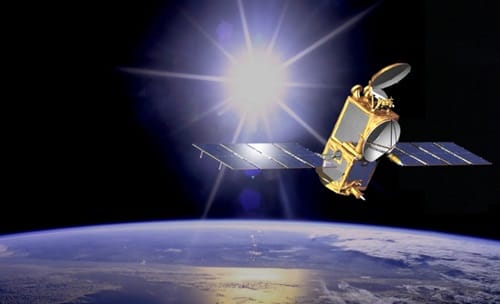Ghana has unveiled a new Space Science Policy designed to harness space technology for national growth. The policy, approved by the Cabinet in March 2022, will coordinate the country’s space activities and establish the Ghana Space Agency to lead advancements in human capital, infrastructure, and space sector development.
The policy was launched in Accra on Tuesday by the Minister for Environment, Science, Technology, and Innovation (MESTI), Mrs. Ophelia Hayford. She emphasized its role in regulating and standardizing space technology use across various sectors to drive technological progress, international cooperation, and sustainable practices in both Ghana and the broader African continent.
Ghana has already utilized space technology in vital areas like environmental monitoring, weather forecasting, telecommunications, and precision agriculture. The new policy aims to further enhance these efforts through coordinated efforts with other ministries and the private sector.
Dr. Joseph Bremang Tandoh, Director of the Ghana Space Science and Technology Institute, highlighted the economic benefits of the policy, stressing that investing in space technologies will drive improvements in agriculture, infrastructure, and overall economic growth. “Space technology can help manage resources, monitor crop health, and address climate change challenges,” he said, noting that the policy would also foster job creation and technological innovation.
Ghana’s space ambitions align with its ongoing participation in the African Square Kilometre Array (SKA) project, a collaboration with South Africa and seven other African nations to build the world’s largest radio telescope network. This partnership underscores Ghana’s commitment to leading space research.
Dr. Kofi Asare, Manager of Remote Sensing and Climate at MESTI, explained how satellite technology supports food security by improving land and water management and predicting crop yields. “Satellite technology allows us to track agricultural conditions and weather patterns, making it crucial for environmental and agricultural management,” he said.
Additionally, Professor Elvis Asare-Bediako, Vice-Chancellor of the University of Energy and Natural Resources, announced plans to introduce space technology programs at the university. “We are equipped to partner with the government and advance the exploration of space technology,” he affirmed.


